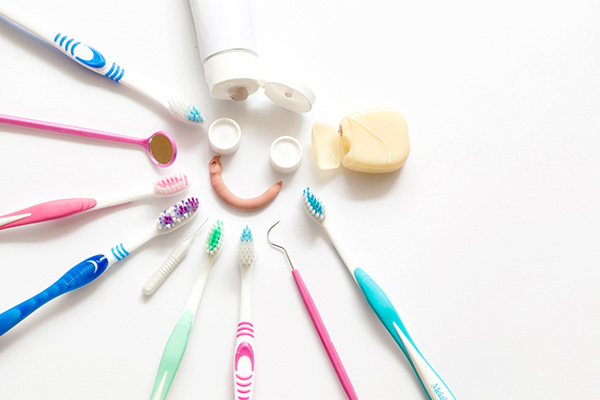 Your general dentist can share more valuable reminders and tips for your oral care. Routine often fixates anyone to the same methods of gum care. There is always room for improvement when it comes to cleaning gums every day. If you want to know some good gum care tips from your general dentist, here are the details.
Your general dentist can share more valuable reminders and tips for your oral care. Routine often fixates anyone to the same methods of gum care. There is always room for improvement when it comes to cleaning gums every day. If you want to know some good gum care tips from your general dentist, here are the details.
Choosing the right foods
A general dentist recommends consuming foods rich in fiber to keep teeth strong and healthy. This prevents periodontitis. Spinach, celery, fruits, and beans are only some of the foods that patients can consider. The American Dental Association supports the fact that these foods help clean gums and teeth.
Choosing sugar-free beverages are also healthy for gums and teeth. Sipping on sweet drinks all day every day can lead to an increase of the bacterial population in the mouth. The presence of bacteria means there is plaque already forming on teeth. Bacteria in plaque produce acids, leading to tooth decay. Water is the ideal drink for oral care.
Flossing before bedtime
Dental plaque has any strains of bacteria. Each one releases acids capable of irritating gums. Bleeding gums, gingivitis, and gum recession result from not flossing daily. Any type of floss can do the job. Water flossers, waxed flosses, dental floss picks, and unwaxed flosses are available. A general dentist would recommend a floss according to the patient’s teeth gaps or gum health.
Flossing before going to bed is the common suggestion of many dental care providers. This prevents food particles from staying on teeth during the night. Beginners in flossing can pick a convenient time to floss. Sticking with the schedule can help form the flossing habit.
Rinsing several times daily
Periodontitis is the primary cause of bad breath. Using a fluoride mouthwash at least one time each day can prevent plaque buildup and keep the breath fresh. Rinsing is also an important habit after flossing and brushing. This removes dislodged food particles and bacteria. It also prevents bleeding gums and tooth decay.
Paying attention to bad breath
It is embarrassing to have bad breath. Most people use products capable of masking bad breath. Mints or minty gum is not a substitute for a dental checkup in any way. The general dentist will help patients treat bad breath. Bad breath may not be a sign of gum disease at all. Some foods can cause unpleasant odors.
Some patients have bad breath because of medications and medical ailments. Frequent bad breath is from a gum infection. Gingivitis turns into periodontitis if it does not receive proper treatment. Birth defects and diabetes often have a connection to periodontitis. Daily flossing and brushing can stop plaque formation and bad breath.
Tips from your general dentist can help maintain your gum health
Personal oral care can contribute to the health of your gums. It is only a matter of discipline. Consistency with your oral hygiene practices can ensure the health of your gums. Healthy teeth mean healthy gums. Regular appointments with your general dentist can reinforce your gum health.
Request an appointment or call Smiles By Julia at 954-493-6556 for an appointment in our Fort Lauderdale office.
Related Posts
Tooth pain is one of the most common reasons people visit a general dentistry clinic, where they may receive a filling or other type of repair for a damaged or decayed tooth. However, in some cases, the tooth in question may be too far gone, and extraction is necessary. While this may be distressing for…
In general dentistry, practitioners offer preventative, restorative, and cosmetic services. General dentists help patients maintain good oral health by preventing disease and decay. For example, when individuals visit their general dentists' office for tooth decay, the dentist can diagnose, clean the decay, and fill the tooth. General dentists understand how oral health affects an individual's…
In general dentistry, the dentist examines, diagnoses, and treats a patient's teeth for various conditions and damage. According to the ADA, about 80% of all dentists choose general dentistry for their practice. Your first point of contact for dental conditions, malformations, or decay is your general dentist.In general dentistry, dentists always attempt to save a…
